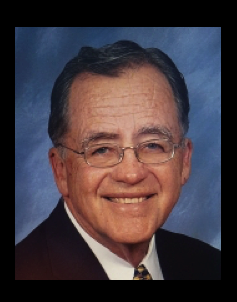MSITE mourns the unexpected passing of Dr. Floyd Elliott Mattheis, 85, on Friday, September 1, 2017.
After graduating from Ellendale High School in 1949 and State Normal and Industrial College in 1952, Floyd was drafted into the United States Army. He served full-time till June 1954 and then served as a reservist until August 1960. After full-time military service, Floyd dedicated his professional life to teaching and learning. In 1954 he started teaching science and mathematics at Granite Falls High School in Granite Falls, Minnesota. In the summers of 1956 through 1958 Floyd completed graduate work at the University of North Dakota at Grand Forks. Building on that work, Floyd earned the Master of Education degree in May 1959 and the Doctor of Education degree in 1962, both from the University of North Carolina at Chapel Hill. Floyd remained a doctoral student while working in the Science Department as an Assistant Professor here at East Carolina College, which is now East Carolina University. In 1963 Floyd earned promotion to Associate Professor of Science Education and in 1966 was promoted to Professor of Science Education. Floyd also became Chairman of the Department of Science Education for 19 years (1966-1985).
Floyd was very successful in acquiring grant funds, including personnel preparation funds to improve the quality of science teaching in North Carolina. While teaching and conducting research at ECU, Floyd helped organize the North Carolina Science Teachers Association and also served on national associations of science teachers, including service on the Board of Directors of the National Science Teachers Association (NSTA) and service as President of the Association for the Education of Teachers of Science (AETS).
Floyd’s impact extended beyond this country’s borders. With grant funds from the National Science Foundation (NSF), Floyd took 10 ECU students to Hyderabad, India, to participate in a Solar Eclipse Expedition and, with additional funds from the NSF, worked subsequently with teachers and science educators in India. Later, invited by the Sony Foundation for Science Education, Floyd visited schools in Japan. Further, also with funds from the NSF, Floyd conducted cooperative research with Japanese science educators.
After several presentations at state, regional, national, and international conferences, including cities in England, India, Japan, China, Singapore, and the Philippines, plus numerous additional scholarly contributions, and well before his retirement from ECU, Floyd received the Distinguished Service to Science Education Award from NSTA (1991) and NSTA’s highest award – The Robert Carleton Award (1996).
After 51 years of work in science education at ECU, including service from 1985-2011 as Director of the Summer Ventures program in our department, Floyd retired in December of 2011 at 80 years of age. We in MSITE remember his jovial spirit and incredible contributions.
One of Floyd’s hobbies was chasing total solar eclipses – he saw 12 of them, including the one August 21, 2017.
Additional details about Floyd’s life are available at this web page, which provided source material for this tribute.
